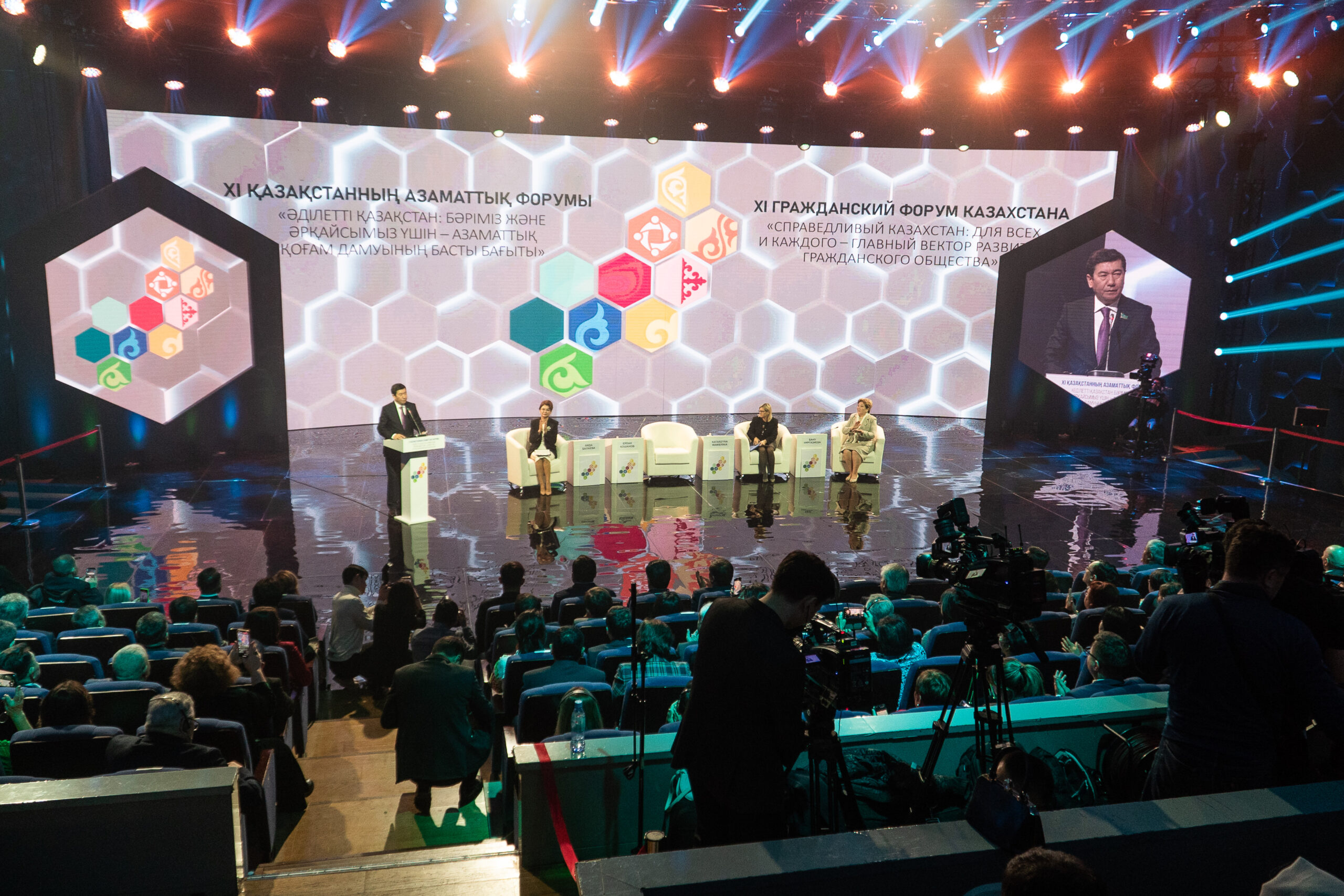ASTANA – The government is increasingly relying on the civil sector to provide more effective collective solutions to prevailing challenges, said Yerlan Koshanov, chairman of the Mazhilis, the lower house of Kazakhstan’s Parliament. His remarks came on the second day of the 11th Civil Forum in Astana on Oct. 19.

Yerlan Koshanov, the chairman of the Mazhilis, spoke at the plenary session on the second day of the 11th Civil Forum. Photo credit: Civil Forum press service.
“If there is no mutual trust among citizens between the state and society, it is impossible to overcome systemic problems and move forward. Therefore, our primary reliance is on our citizens and civil society,” he said.
Speaking at the plenary session, Koshanov outlined the various ways in which the civil sector has participated in the transformation of the country.
He cited the creation of the Public Chamber under the Mazhilis, comprising 40 representatives of various non-governmental organizations (NGOs) and community experts.
“The Public Chamber is a dynamic and open platform for expressing various positions, a real channel of communication between society and the state. Therefore, our goal is to move the focus of all public discussions that concern society within the confines of the Parliament,” said Koshanov.
“I believe it is right to devote one of the sessions to the development of the civil sector in our country,” he added.
Civil society has also played an important role in the legislative processes.
“The recent adoption of the law on public oversight has empowered citizens with new avenues to influence state governance. A system of petitions has been introduced. The state will now be obliged to address pertinent societal demands,” said Koshanov.
Discussing future plans, Koshanov emphasized the government’s commitment to expanding the role of civil society via several measures.
“We plan to reduce the requirement for the number of initiators of a public association from ten to three people. Currently, there is an active discussion of the bill on consumer protection in the Mazhilis,” he said.
Minister of Culture and Information, Aida Balayeva, who moderated the plenary session, noted the importance of the Civil Forum in offering better collective solutions.
“Over the past three years alone, the forum’s decisions have become the basis for the adoption of several strategic documents and laws. These include the Concept for the Development of Civil Society until 2030, the law on public oversight, legislative amendments to create a single legitimate institution for online petitions, amendments to legislation on public councils, peaceful assemblies, charity, volunteer activities, state social order, and grant funding for NGOs,” said Balayeva.
“These measures have improved the mechanisms of interaction between the state and the civil sector and created the conditions for its full development,” she added.
Katarzyna Wawiernia, the Resident Representative of the United Nations Development Program (UNDP) in Kazakhstan, highlighted the country’s strides in sustainable development, facilitated by a productive partnership between civil society and the state.
“We are halfway through the implementation of the 2030 Agenda for Sustainable Development. This is a critical moment when more action is needed to achieve the Sustainable Development Goals (SDGs),” she said.
The first day of the 11th Civil Forum focused on discussions around Kazakhstan’s progress towards achieving SDGs and the role of NGOs in this journey.
The forum demonstrates Kazakhstan’s determination and commitment to the SDGs. The UNDP supports the country in this, said Wawiernia.
She commended the proactive involvement and dedication of NGOs in drafting Kazakhstan’s first and second Voluntary National Reviews in 2019 and 2022, describing their contributions as noteworthy.
“The country’s non-governmental sector is rapidly developing in response to new social challenges, which makes the partnership even more productive and focused on the SDGs,” said Wawiernia.

